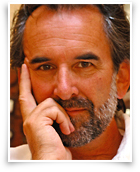
Richard Harvey
connecting psychotherapy and spiritual growth for human awakening
Facilitating Groups and Communities
My work with existing groups, businesses and communities aims to resolve difficulties that prevent the group achieving its aims. Together we seek to understand how group members are behaving when carrying out tasks, solving problems, or making decisions.
To find ways to help a group accomplish its aims, we examine values and intentions, clarify goals, and look deeply at the collective process, including:
- how the group communicates and coordinates
- the patterns of influence within the group
- roles and relationships
- patterns of dominance
- balancing task focus and social focus
- the level of group effectiveness
- handling conflict
- the emotional state of the group and how emotions are dealt with
- the basic assumptions within the group
What Can It Achieve?
A collection of individuals working toward a common end holds tremendous potential. Increasing efficiency, refining aims, reinforcing cooperation, and aligning motivation optimize this potential for the increased satisfaction and fulfillment of both the group itself and its individual members.
Who Is It For?
Any kind of collective undertaking, whether formal or informal, commercial or private, including:
Self-help groups: Group process is usually the primary focus in self-help and personal growth groups, e.g. encounter groups, study groups, meditation and prayer groups. We look at issues of inclusion, control, and affection, group development, and how the group resolves its problems.
Spiritual communities: Spiritual communities by their nature have the exalted aim of interaction and cooperation to reach a greater goal. Whether it is surrender, inner peace, harmony and tranquility or spiritual renunciation, its members individually and collectively intend to surpass their personalities to create authentic community.
Alternative cooperative living projects: In cooperative ventures that assume personal equality the social status of members may be hidden or denied. The implicit or explicit leadership strongly influences the group's behavior and goals. This influence may also be affected by sex, race, age, income, appearance, and personality, and affect how individuals are connected to each other by social relationships.
Professional business partnerships: When groups of individuals gather together to achieve a business objective, several stages must be fulfilled to create a productive, cohesive team and ensure efficiency.
Alternative and free schools: Educational projects like these experience many of the issues listed above, but particular areas of difficulty are: agreeing on educational principles and philosophy, obtaining adequate funding, personal competitiveness, individual conflict, dissension about hierarchy.
Domestic communities: Families, extended families and plural families (more than one biological family living together) are prone to personal and collective issues such as: emotional inclusion, finance, cooperation, sexual jealousy, possessiveness, gender issues, dominance and prejudice (often hidden and unconscious).
About Group Dynamics and Group Process
Working with group dynamics is not individual therapy, neither is it group therapy in the sense of working with individuals and group processes directly. Group dynamics has a wider focus: bringing awareness to the foundation structures of the group and asking how it works, how it functions, and what prevents it working better. We consider the group as a whole, a single entity comprised of individuals with a complex composition of personal, structural, dynamic and relational elements.
Group processes include norms, roles, relations, development, the need to belong, social influence, and effects on behavior.
If You Are Interested
A free consultation is available to consider whether short or ongoing facilitation is desirable and appropriate and what direction it needs to take.
I will ask you to send me a summary outline and history of your group, and highlight the areas of conflict, rivalry and ineffectiveness, particularly with respect to differing factions in the group and any conflict of intentions. Then we set a date for meeting in which all members of the group should be present.
Organizing Workshops, Courses and Events Internationally
I am available to run workshops on therapy and spiritual growth internationally. If you would like to organize an event or invite me to facilitate an existing group please contact me.
Share this page
What clients say
![]() When Richard came to work with our group we were at a very low ebb. The splits in the group had brought our project almost to a standstill. We were a prime example of inefficiency, lackadaisical administration and personal dissension. With great skill and sensitivity Richard shared his insights about what was happening inside our organization and revealed why we were behaving in such a self-destructive manner. Richard empowered us to become aware of the deep-seated problems we were facing and gave us the tools to change.
When Richard came to work with our group we were at a very low ebb. The splits in the group had brought our project almost to a standstill. We were a prime example of inefficiency, lackadaisical administration and personal dissension. With great skill and sensitivity Richard shared his insights about what was happening inside our organization and revealed why we were behaving in such a self-destructive manner. Richard empowered us to become aware of the deep-seated problems we were facing and gave us the tools to change.![]() T.B.
T.B.